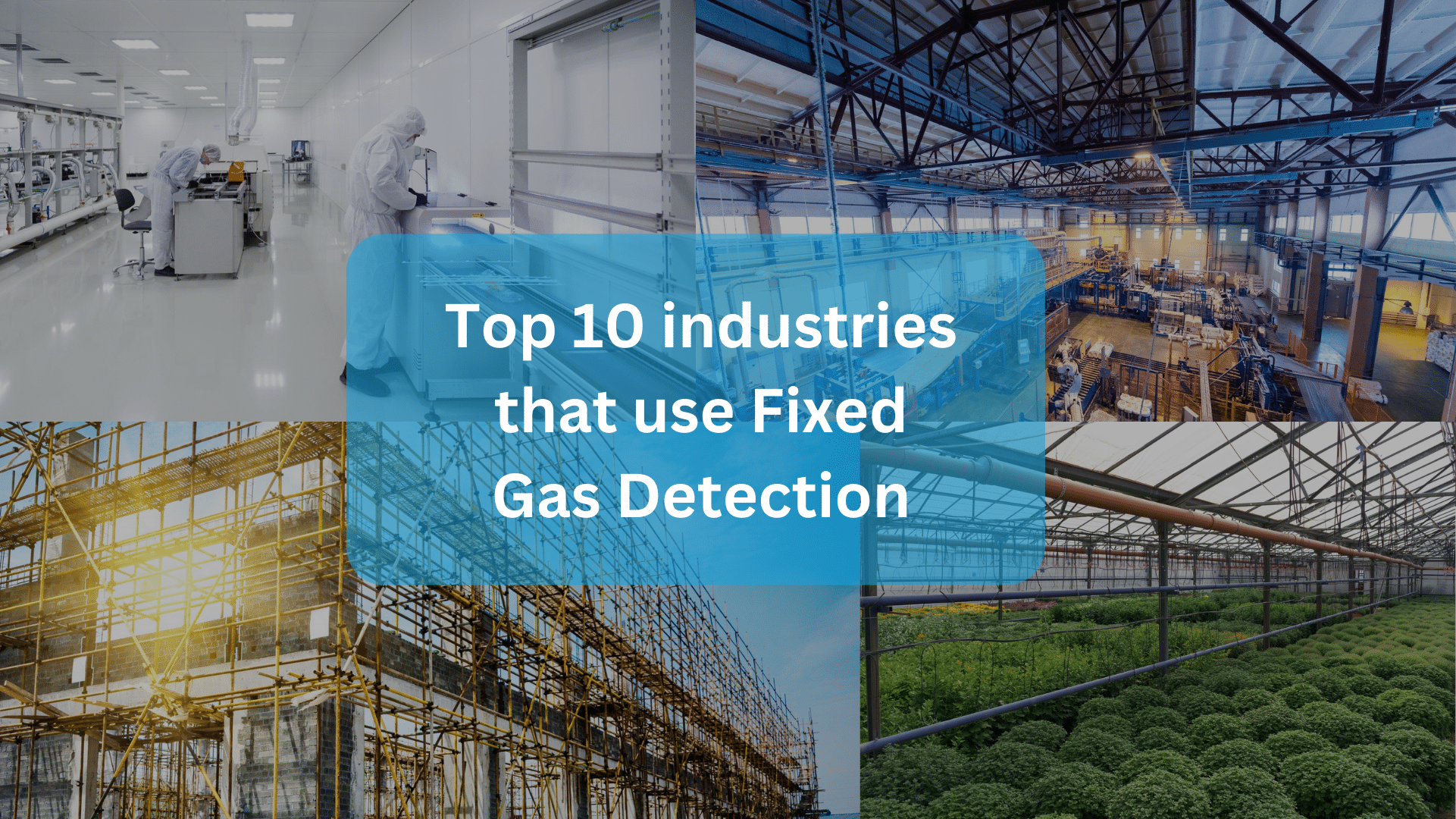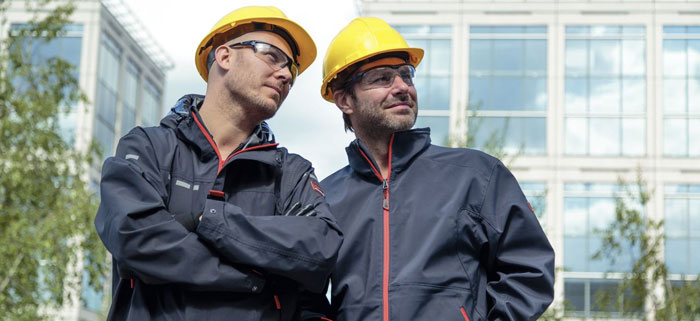
Top 10 industries that use Fixed Gas Detection
Fixed gas detection systems are essential tools across various industries, providing continuous, reliable monitoring of hazardous gases. They are installed in areas with high gas leak risks or where constant monitoring is critical for safety and compliance. Here are the top 10 industries that rely on fixed gas detection systems:

1. Oil & Gas
Fixed gas detectors play a key role in oil and gas facilities, monitoring flammable gases like methane (CH₄) and toxic gases such as hydrogen sulfide (H₂S). They help protect workers and equipment from potentially catastrophic leaks. Offshore rigs, refineries, and pipelines depend on these systems for 24/7 safety, even in unmanned areas.

2. Manufacturing and Industrial Processing
Manufacturing facilities install fixed detectors to monitor gases such as ammonia (NH₃), carbon monoxide (CO), and volatile organic compounds (VOCs). These systems provide continuous safety, alerting operators to leaks that could harm workers or disrupt production.

3. Energy Production
Power plants and renewable energy sites use fixed gas detection to maintain safe conditions. For example:
- Natural gas and nuclear facilities monitor carbon dioxide (CO₂) and sulfur dioxide (SO₂).
- Hydrogen production sites detect potential leaks in storage or distribution systems.

4. Environmental Monitoring
Fixed gas detection systems monitor greenhouse gases like methane (CH₄) and carbon dioxide (CO₂) in areas such as landfills and industrial zones. These systems support environmental compliance, air quality monitoring, and climate change mitigation efforts.

5. Pharmaceuticals
In pharmaceutical labs and production areas, fixed gas detectors ensure:
- Safe oxygen levels.
- Detection of toxic gas leaks.
- Protection of sensitive equipment and sterile environments.
These measures help maintain safety and uphold the quality of medical products.

6. Construction and Tunnelling
Tunnels and confined spaces often have limited ventilation, making fixed gas detection critical. These systems monitor:
- Oxygen levels.
- Hazardous gases like methane.
Real-time monitoring enhances worker safety in areas where mobile detectors may be insufficient.

7. Water and Wastewater Treatment
In water treatment plants, fixed gas detectors monitor gases such as:
- Hydrogen sulfide.
- Methane.
- Chlorine.
They are installed in areas like tanks and storage zones to protect workers and prevent accidents.

8. Mining
Underground mining operations face risks from explosive gases like methane and toxic gases such as carbon monoxide. Fixed gas detectors continuously monitor key areas, providing early warnings to protect miners and prevent disasters.

9. Agriculture
Agricultural facilities, including livestock farms and silos, use fixed gas detectors to monitor:
- Ammonia.
- Methane.
These systems help comply with environmental regulations and maintain safer conditions for animals.

10. Marine and Offshore Applications
Marine and offshore environments rely on fixed gas detectors to monitor confined spaces like:
- Engine rooms.
- Cargo holds.
- Fuel storage areas.
These systems detect flammable and toxic gases, ensuring crew safety during hazardous operations.
There are many different applications and industries in which fixed gas detectors are used. If you believe you may need a fixed gas detection system, get in contact with the team. The team are experts in the industry and are happy to answer any questions you may have. Get in contact with the team today! – Contact Us





